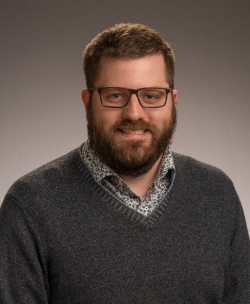Dr. Guy Weissinger and Team Studying Evidence-Based Intervention for Emergency and Critical Care Nurses Experiencing Trauma from COVID-19 Frontline Service

"I am a nurse to my bones and knew that nurses needed and deserved more than they were getting in their time of need,” says Assistant Professor Guy M. Weissinger, II PhD, MPhil, RN. A former therapist who is now a nurse scientist and educator with a focus on mental health and health systems, his team has been awarded a $50,000 grant by Reading Hospital Foundation to study “The Impact of Narrative Expressive Writing (NEW) on Improving Resilience in Nurses Working in Critical Care and Emergency Departments.”
The work involves faculty and staff from across the country and includes Tower Health, the University of Colorado, the Johns Hopkins University, the Goldfarb School of Nursing at Barnes Jewish College, and Villanova University Fitzpatrick College of Nursing and is an extension of the team’s qualitative work interviewing nurses about trauma symptoms related to COVID-19 frontline service.
The research team is comparing two evidence-based practices that have been shown to help people with workplace trauma: mindfulness apps and narrative expressive writing. In doing so, none of the nurses will be left out and all who wish it will receive support for their mental health.
This current research partnership grew out of a recognition from across the country that nurses are currently experiencing burnout, moral injury and trauma from their work during the COVID-19 pandemic. “I was asked to join the group due to my mental health experience and work in qualitative research that focused on both individuals and systems,” Dr. Weissinger explains, adding, “While it is not my normal area of focus, I am a nurse to my bones and knew that nurses needed and deserved more than they were getting in their time of need.” After doing surveys and interviews with nurses in a variety of roles, the team found that critical care nurses generally had the highest symptoms of anxiety, depression, trauma and burnout, so they became the focus of this study.
Dr. Weissinger notes, “While systemic changes are needed to support nurses ongoing and our team does work with administrators on change in partnered healthcare systems, nurses are hurting now and need more individualized and immediate help.”
Dr. Weissinger's research works with patients, providers, and family members to better understand and improve health systems. He uses mixed methods approaches to complex problems like suicide prevention, adolescent mental health and health workforce issues.
